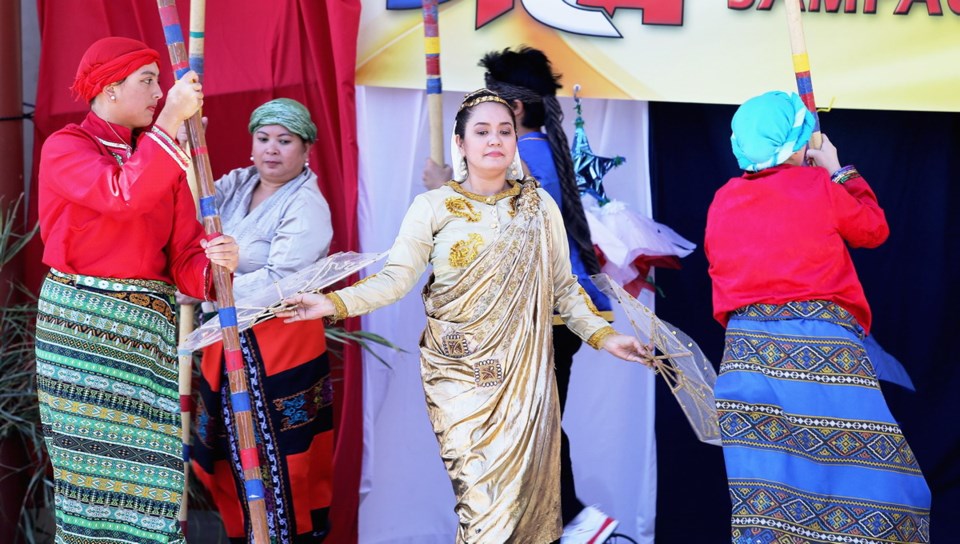It’s disappointing when festivals such as Rock the Shores and Rifflandia are cancelled, but some local events appear to be more resilient than others.
Last month, organizers cancelled the 2019 edition of Rifflandia, citing a high exchange rate with the U.S. and changing concert trends among the reasons. Colwood’s Rock the Shores festival returned in 2018 following a one-year hiatus, but it won’t be held this year.
Paul Nursey, Destination Greater Victoria’s chief executive, said events that endure tend to be ones that tap into a special interest or community.
He points to Northwest Deuce Days, held in July, and the Victoria Highland Games and Celtic Festival, which took place last month.
Classic-car enthusiasts make a point of travelling to Victoria every three years for Deuce Days to see 1,200 pre-1952 vehicles on show around Victoria’s Inner Harbour and at the legislature grounds.
“Those are ready-made communities of people who will make an absolute commitment to go to that thing because they are passionate about that event or activity,” Nursey said. “Whereas perhaps a broader festival that is more general interest has to compete for the time and attention of the consumer, which is more broad and more ephemeral.”
Organizers of the Rifflandia Music Festival, which ran for a decade, drawing thousands of people and families to Royal Athletic Park and other downtown locations each September, announced last month that it would not go ahead this year. Next year's event is planned for Sept. 17-20, 2020.
While it’s disappointing, Nursey said, he doesn’t blame Victoria’s Atomique Productions, which put on the festival. It can be a high-risk venture to book acts, he said.
“I don’t blame them for being prudent business people if it is not looking like it is going to be viable,” he said.
“Rifflandia was a festival that certainly added brand cachet and did definitely draw people from out of town.
“It’s disappointing, but we see this everywhere.”
Port Renfrew’s Tall Tree music festival ended in 2017, and the mainland has seen the demise of both the Pemberton and Squamish music festivals.
Sometimes, other festivals arise in their place. The new Squamish Constellation Festival is planned for three days in late July.
Festivals provide work and business opportunities in the capital region — everything from food trucks to security, refreshments and clean-up.
But the good news is that anyone who would have worked at a now-cancelled festival has the benefit of being in the capital region, which has an unemployment rate of just 3.6 per cent — the third lowest in the country. Help-wanted signs are widespread as employers in all sectors desperately look for workers.
The blow of losing Rifflandia this year is lessened by the fact that it’s one of about 100 festivals staged in the capital region annually, said Nursey, noting Destination Greater Victoria partners with between 15 and 20 festivals every year.
“The important thing for Greater Victoria is that there are many things to see and do and there’s a great variety in our vibrant city.”
To be considered for partnership with Destination Greater Victoria and the hotel industry, events need to generate overnight stays, promote repeat visits, include a promotional plan and be held in low or shoulder seasons.
Nursey said it’s critical to have a robust survey program, with a statistically relevant sample and prescribed format, to measure the economic impact of an event, including how many out-of-town visitors it draws.
Capital City Comic Con, which Nursey’s organization works with, pulls 9,300 delegates annually to the Victoria Conference Centre. Of those, 2,300 are from outside the capital region.
Other successful annual events include the two-decade-old Victoria Ska and Reggae Festival and the Victoria International JazzFest, marking its 36th year. Both are being staged this month.
One business category that gets a boost from festivals is food trucks.
Karrie Hill, owner of Victoria’s Deadbeetz truck, said festivals boost food trucks’ profile, introducing them to new customers and new demographics.
She was sorry to see Rifflandia cancelled — she has a good relationship with the organizer and had been scheduled to return this year. “It is a real loss to the community.”
Hill, who owns two trucks, said the Rifflandia cancellation means she hired one fewer worker for the summer. But Deadbeetz will continue to be at the food-truck site behind the Royal B.C. Museum, as well as other special events. “Other opportunities are going to come up,” she said. “You’ve got to roll with it.”
Scott Renton, owner of the six-week-old Burger Crush food truck based at 1580 Cook St., is hoping to find a place at a festival this year.
He agreed that being at a festival is about more than food sales: “You get in front of more people,” he said. “You get to spread your brand.”



